Pininfarina pushes the boundaries with the Pura Vision, a Luxury Utility Vehicle concept
Italian car maker Automobili Pininfarina is looking to a world beyond hypercars to imagine tomorrow’s electric ultra-GT
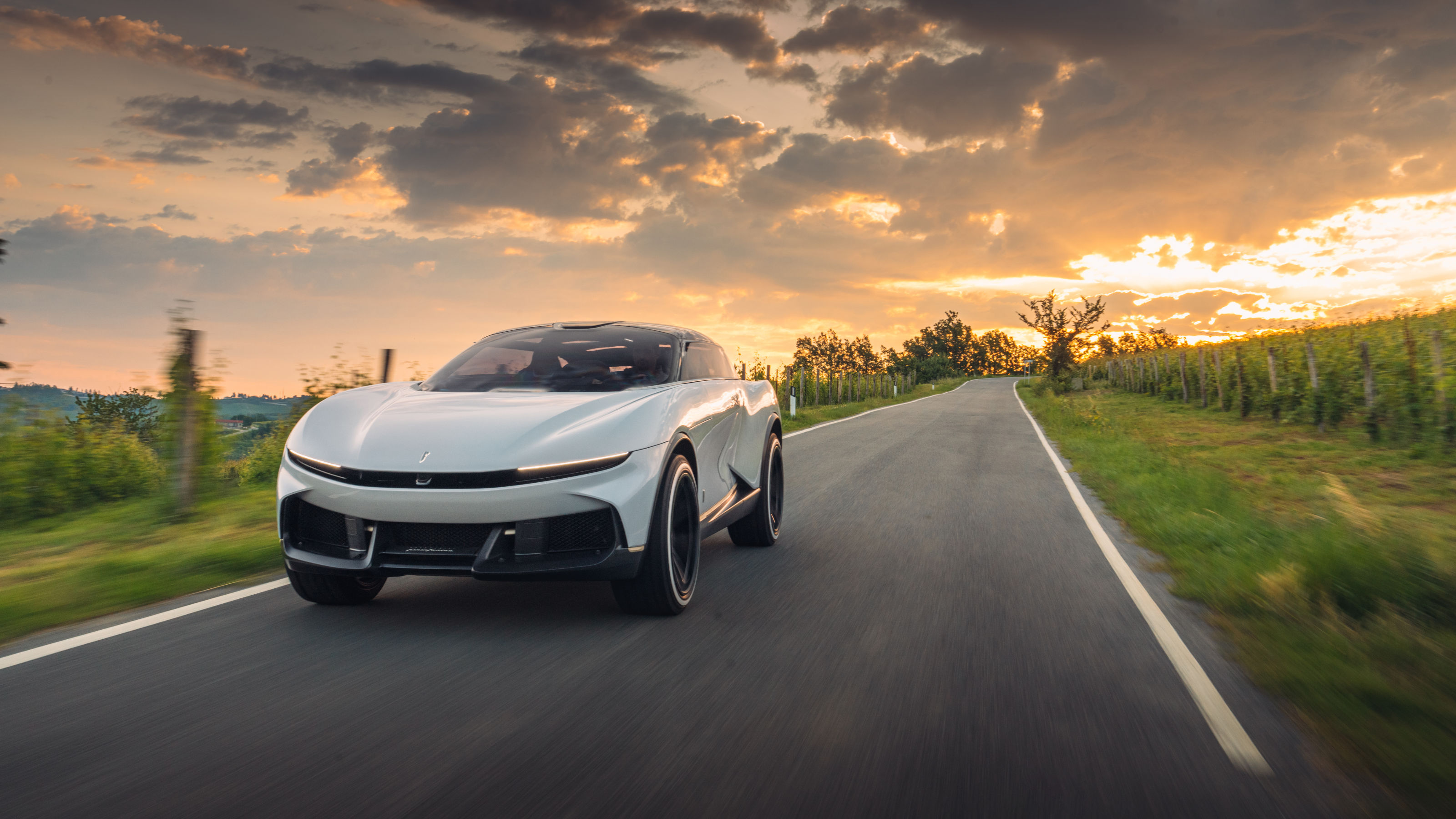
Automobili Pininfarina is undergoing a transformation from a design house to a car manufacturer in its own right. The company is currently crafting a select number of bespoke Battista electric hypercars at its sites in Cambiano, Italy and Munich, Germany. But what’s next? With only 150 examples of the Battista due to be built, Pininfarina needs a model that takes its novel take on luxury electrification to a wider audience.

The new Pura Vision is, strictly speaking, a concept car. Revealed today at Monterey Car Week, this high-riding LUV (Luxury Utility Vehicle) takes a very different approach to high-end auto design. Cynics might say that this is simply an SUV, an electrified version of the range-topping models from Ferrari (Purosangue) and Aston Martin (DBX 707). But the Pura is not just all-electric from the ground up, it’s also lower and very differently proportioned to a ‘conventional’ SUV.
We spoke to Dave Amantea, Automobili Pininfarina’s Chief Design Officer, about the journey to this vision, and what it means for what’s coming next.
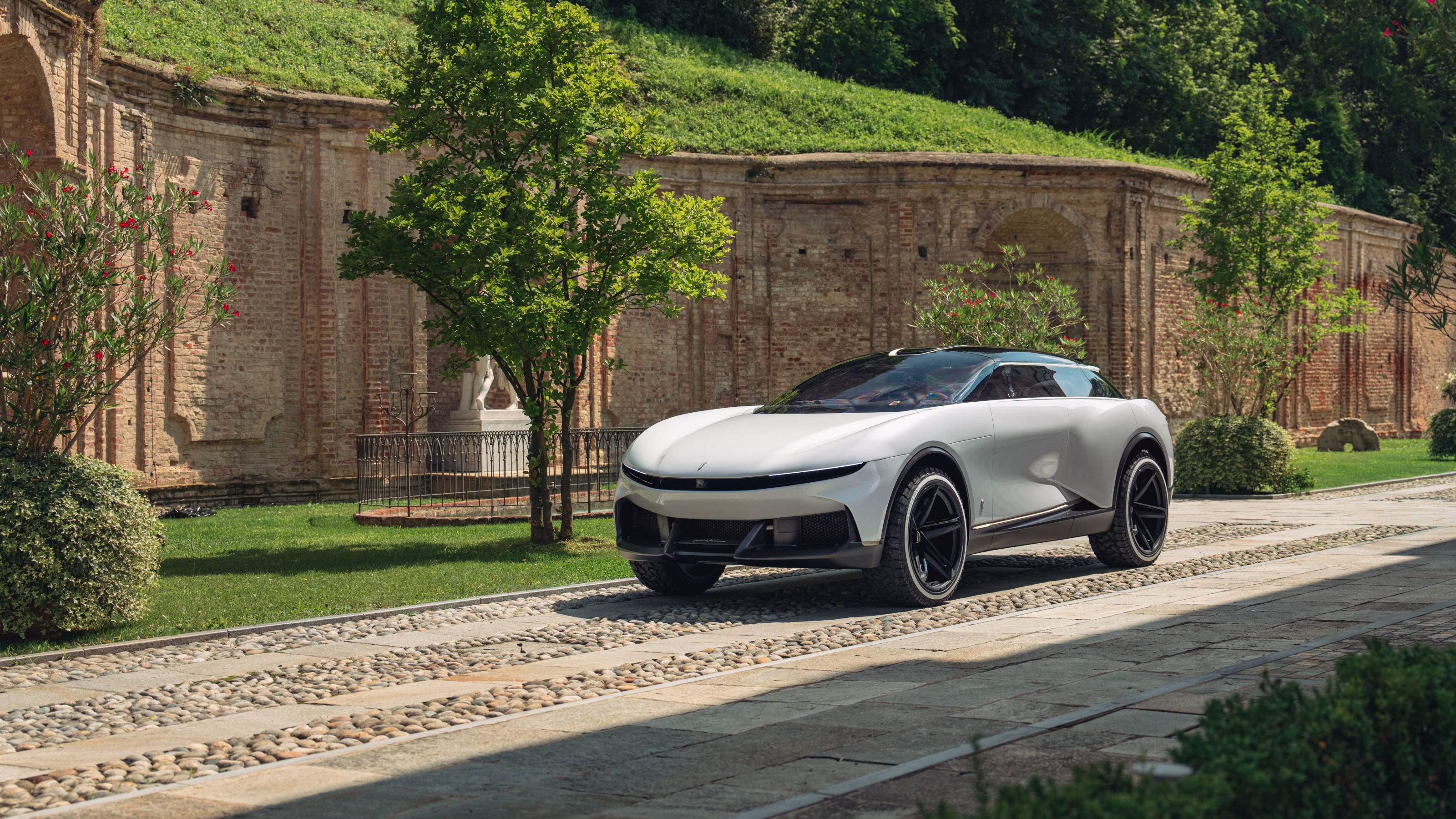
‘Everything we do as a company should have a really strong vision,’ Amantea explains, ‘when we were developing the Battista, we wanted to create a vision that would influence the entire company… We’ve been the kingmakers for a lot of brands in the past, but this was something for ourselves.’ At around about the same time as work began on Battista, Amantea and his team were also exploring other directions. ‘We were exploring what we could create for a minimum of four occupants,’ he says, ‘a car that is trying to be different – an Italian reinterpretation of the SUV segment.’
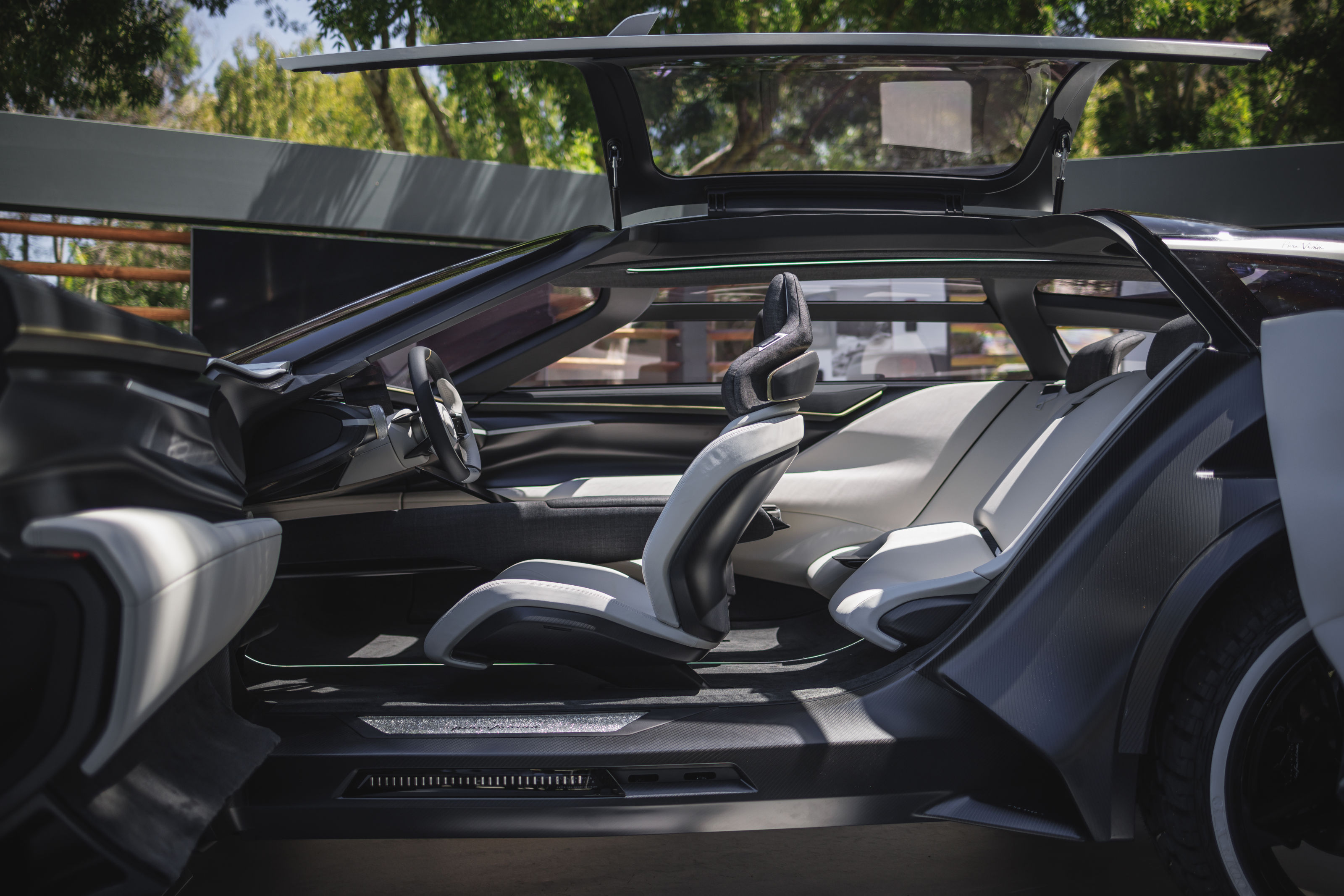
Amantea points out that Pininfarina’s customers – admittedly there haven’t been very many to date – are looking for something different, particularly in the realm of electric cars. A scale model of the original Pura concept was shown to select customers at Pebble Beach in 2019, partly to, in Amantea’s words, ‘give them confidence in the future of the brand.’ ‘We put our customers at the centre of our scopes,’ he continues, ‘it wasn’t until 2022 that we decided we were ready to show the concept to a wider circle.’
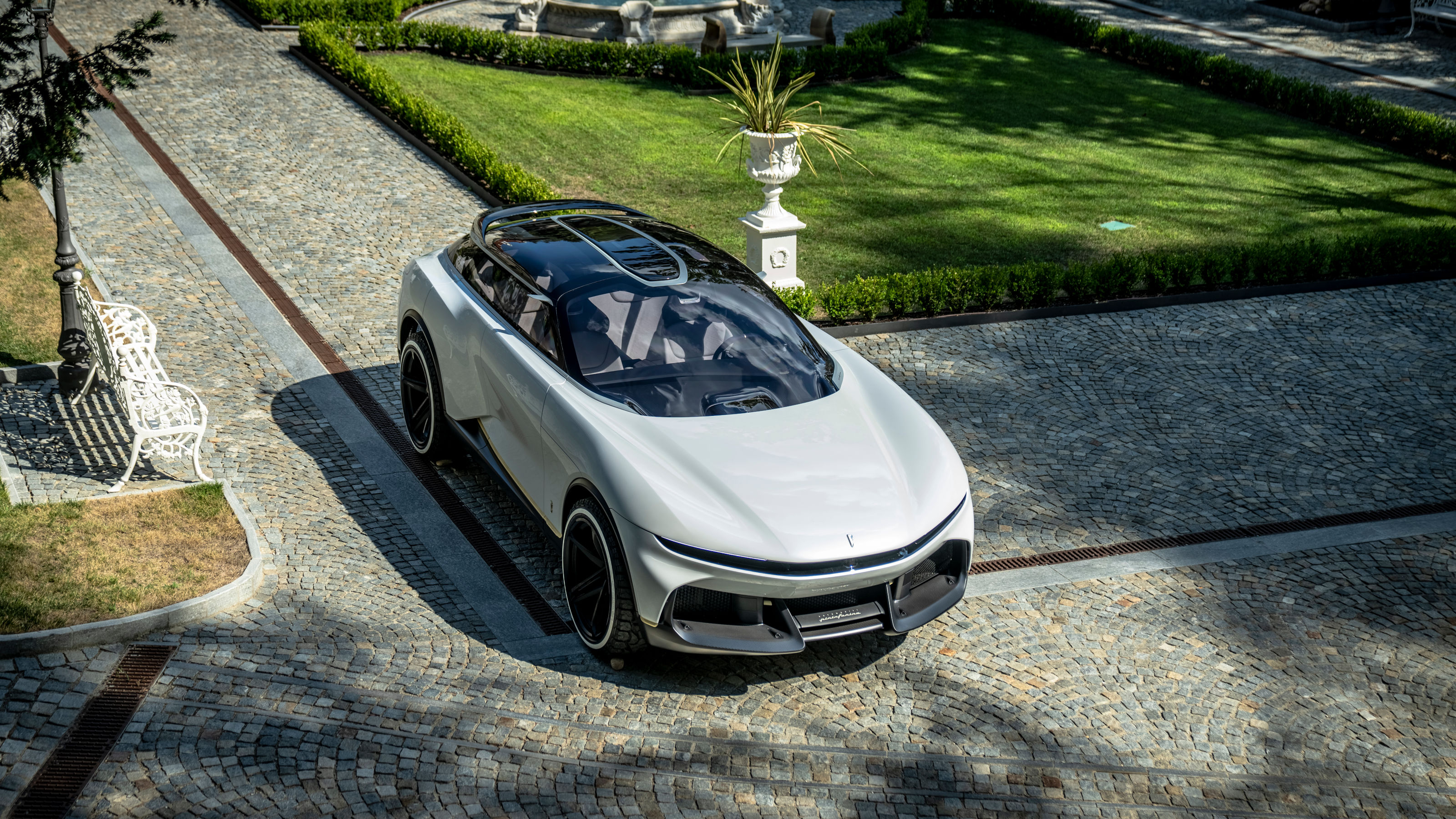
It's taken another twelve months for the car you see here to go public. With raised up ground clearance, but with a rear-set, wrapround glass cabin and voluptuous bodywork, the Pura is quite unlike any car from Pininfarina’s regular luxury rivals. It’s more akin to the cinematic drama of 70s and 80s concept vehicles, especially with its rear opening rear doors and gull-winged glass roof panel that raises to ease access into the four-seater cabin.
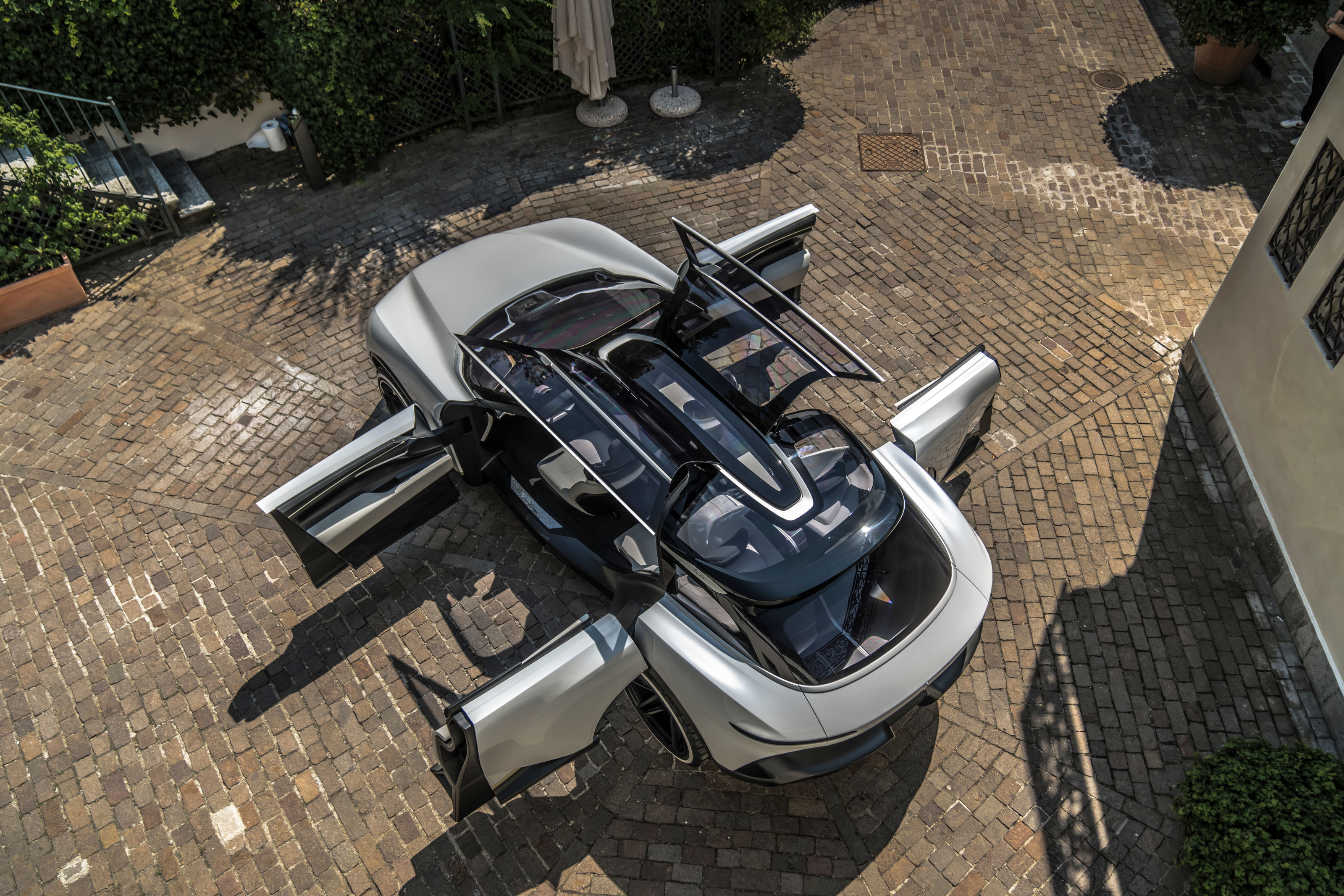
‘The positive feedback exceeded our expectations,’ Amantea says of last year’s unveiling, ‘We’re saying that Pininfarina is not just about Battista. We’re ready to design anything, and this concept shows our vision of future luxury.’ One key inspiration was the world of gravel bikes. This hybrid of the speed and lightness of a racing bike with the rugged structure of a mountain bike gives the gravel bike a very distinct set of characteristics and qualities. The Pura is cut from the same cloth.
Receive our daily digest of inspiration, escapism and design stories from around the world direct to your inbox.
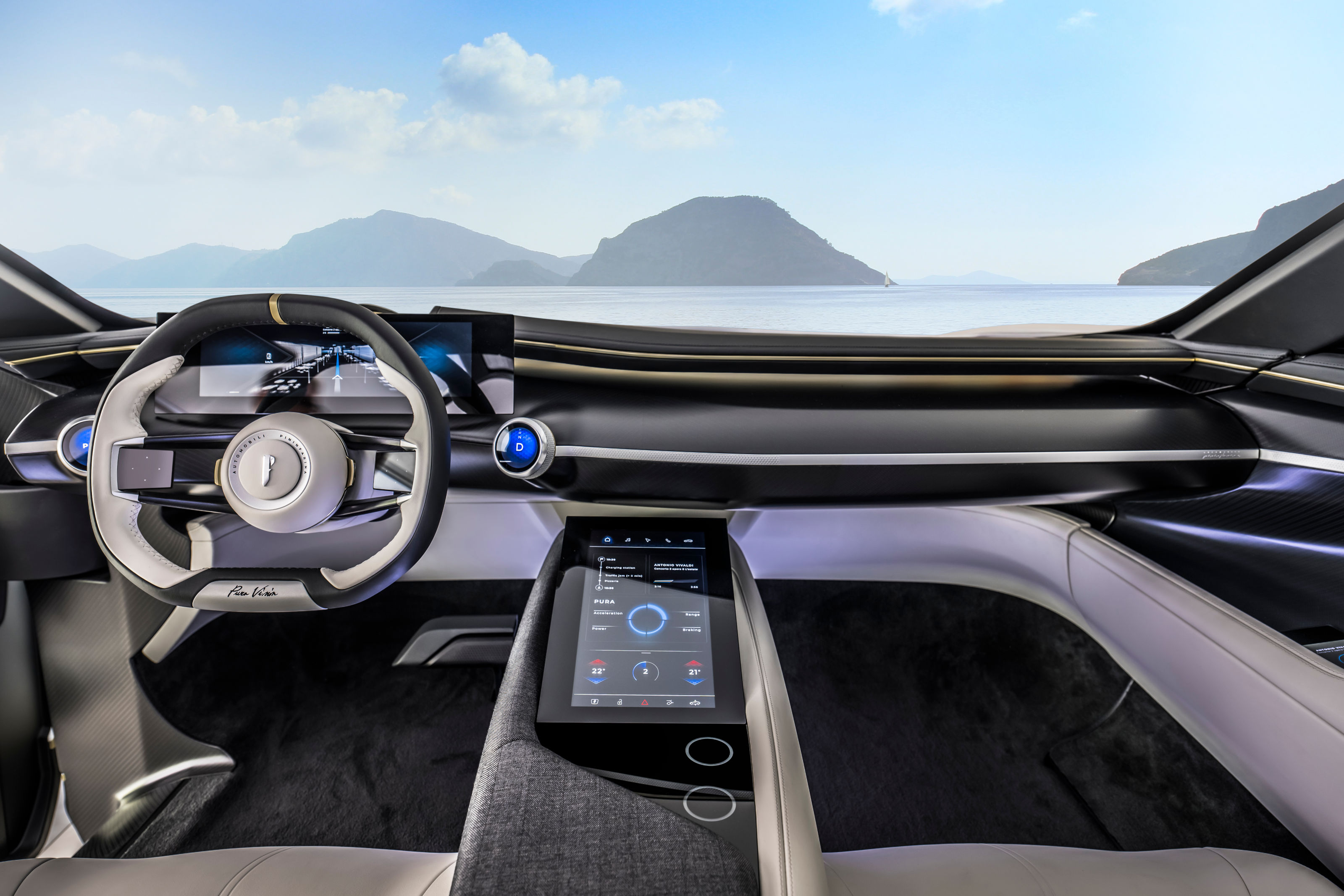
‘We’ve noticed that our customers want off-road as well as sporting ability,’ Amantea says, ‘Of course, only a small percentage of people take their SUVs off-road. Extreme off-roaders use dedicated vehicles. But in luxury design, we have to give people something in between.’ One jumping off point was the world of yacht design, an increasingly popular reference for car designers of all stripes, but especially in the luxury sector. The interior also shuns leather in favour of a new signature textile made from 30% Nativa wool and 70% recycled polyester.
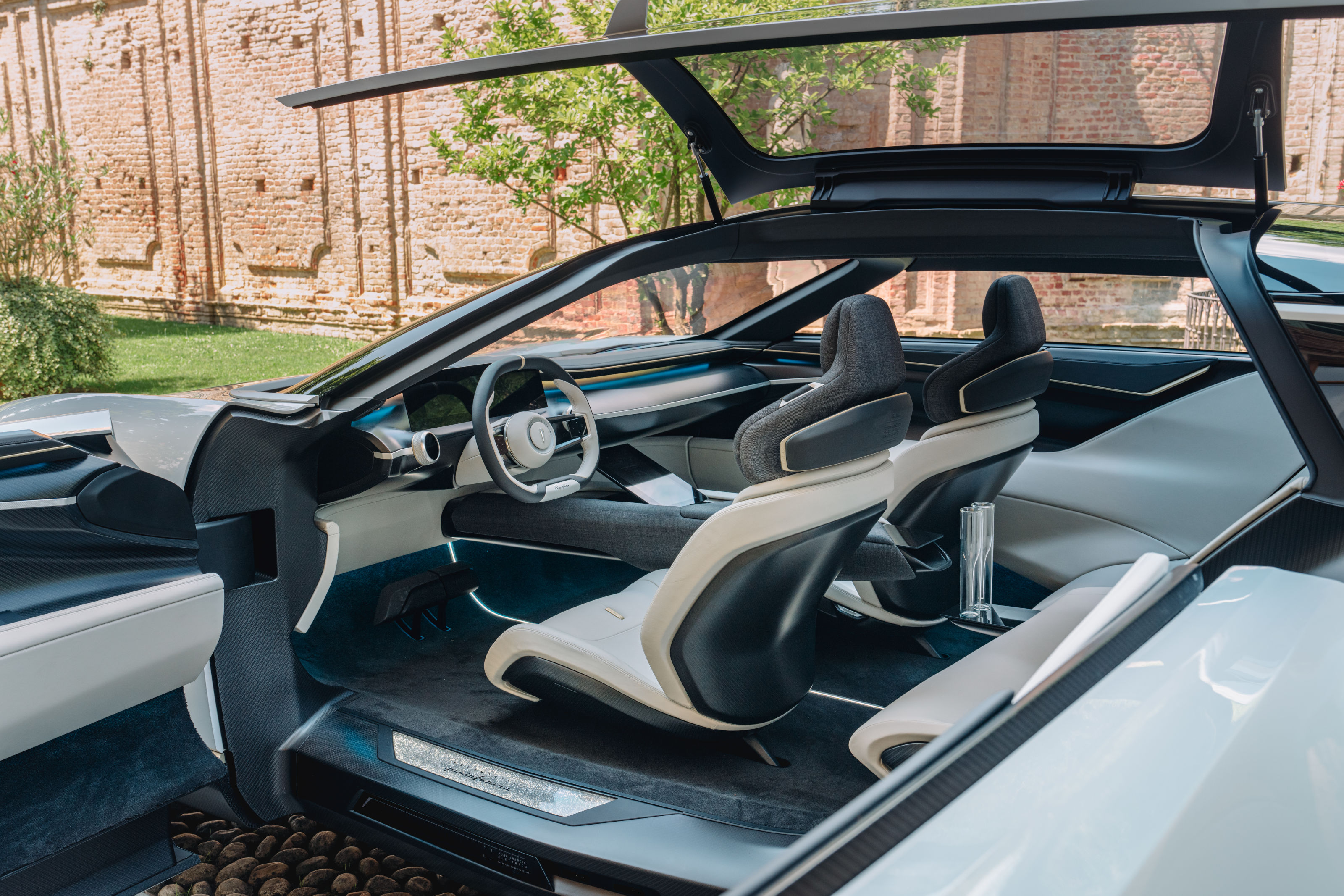
The Pura Vision basks in the technical wizardry that defines a good concept, from ‘nanofibre’ headlights to vast 23-inch wheels, ‘Lounge Door’ openings with a pillarless design and those dramatic opening side windows (inspired by Battista Farina’s design for the 1950s Lancia Florida saloon). The glasshouse is ringed with an anodised aluminium beltline, with another aluminium element defining the roof, while also incorporating the rearview cameras.
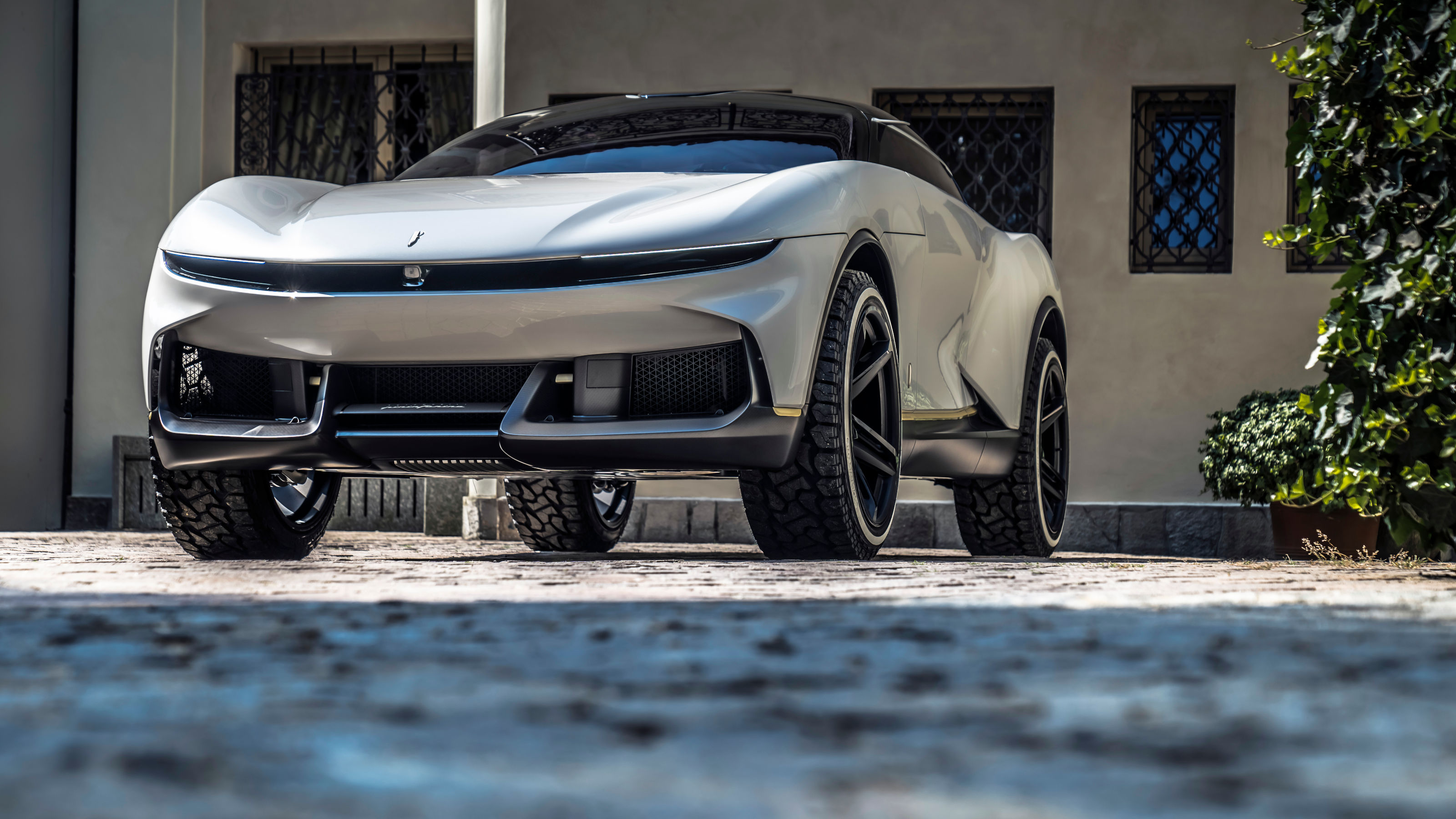
Although Amantea is adamant that the Pura is a ‘design vision only,’ he acknowledges that ‘when we show something, there is a solid study behind it.’ Given that Pininfarina’s select customer base helped determine the packaging and approach, particularly the interior, it is unlikely that they won’t be offered the chance to buy something very similar, very soon. ‘Our customers recognised Pura Vision as a new animal on the market,’ says Amantea, adding that ‘Pininfarina has always been about making trends.’ This is one vision we expect to translate into reality.
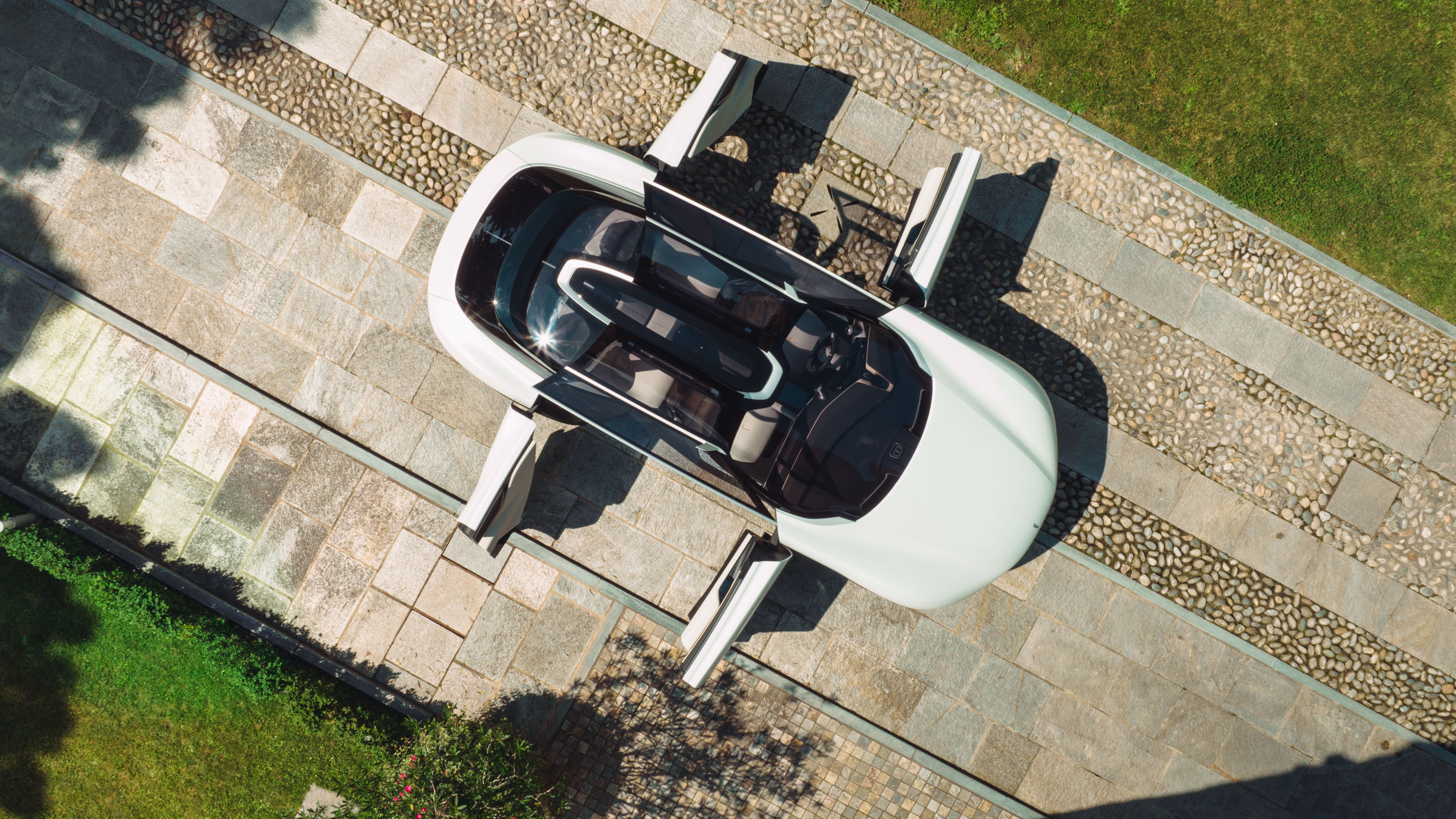
Pura Vision, concept only, Automobili Pininfarina, Automobili-Pininfarina.com
Jonathan Bell has written for Wallpaper* magazine since 1999, covering everything from architecture and transport design to books, tech and graphic design. He is now the magazine’s Transport and Technology Editor. Jonathan has written and edited 15 books, including Concept Car Design, 21st Century House, and The New Modern House. He is also the host of Wallpaper’s first podcast.
-
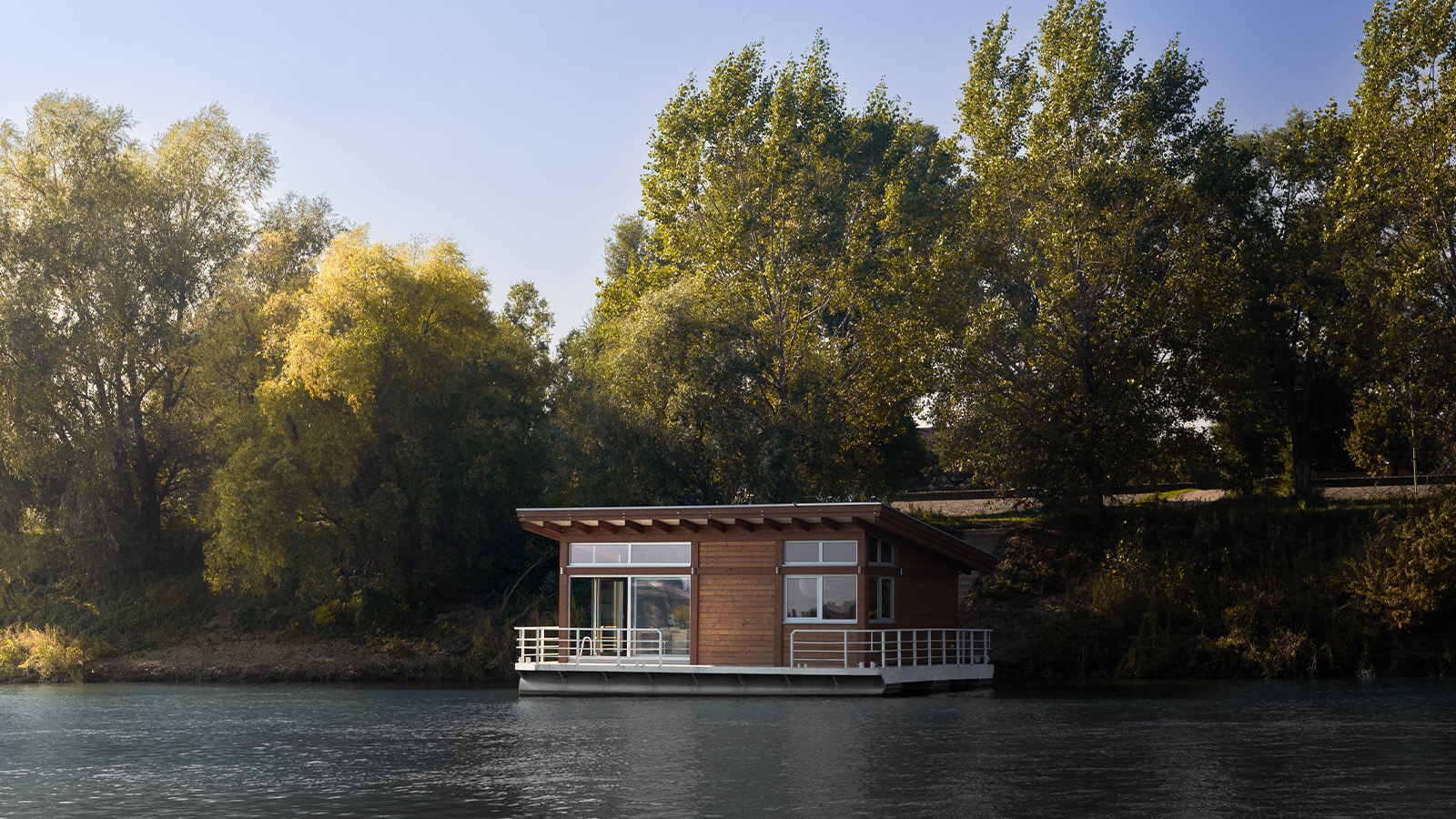 This floating river cabin in Serbia is a peaceful haven inspired by old shipyards
This floating river cabin in Serbia is a peaceful haven inspired by old shipyardsThis Sava River cabin, a floating design by Aleksandar Stanković, is an intimate home, perfect for leisurely afternoons, cold water swimming and weekend stays
-
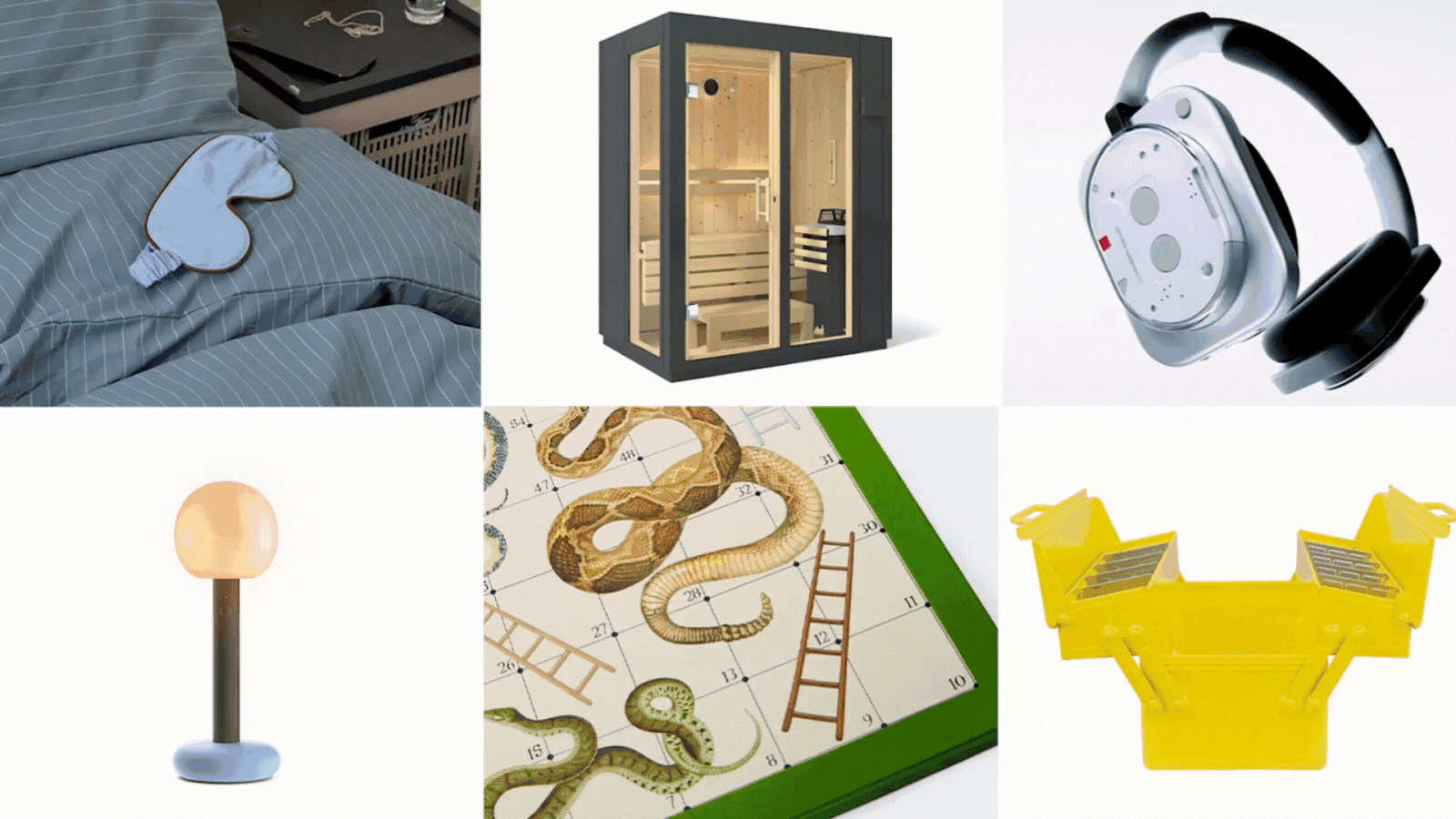 2026 horoscope: design for every star sign
2026 horoscope: design for every star signFor the Wallpaper* 2026 horoscope, we asked Italian astrologist Lumpa what the stars have in store for the year ahead, and what design objects each sign will need to face the new year
-
 The White House faced the wrecking ball. Are these federal buildings next?
The White House faced the wrecking ball. Are these federal buildings next?Architects and preservationists weigh in on five buildings to watch in 2026, from brutalist icons to the 'Sistine Chapel' of New Deal art
-
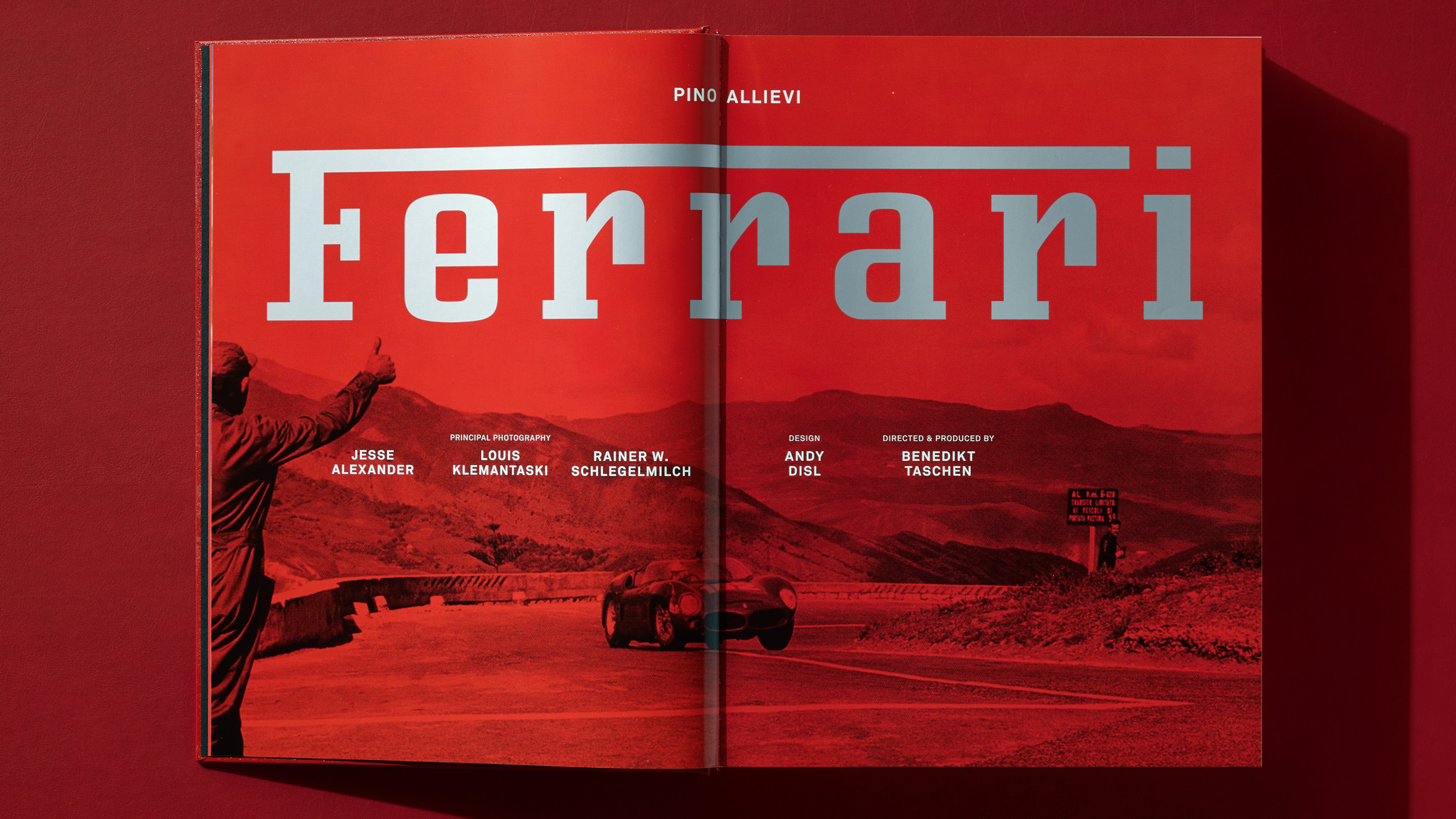 Taschen’s all-encompassing history of Ferrari is a mighty monograph for a mighty brand
Taschen’s all-encompassing history of Ferrari is a mighty monograph for a mighty brandAt nearly 700 pages, this new book from Taschen is the ultimate gift for the Ferrari fan in your life, spanning the brand’s history on road and track from inception through to the present day
-
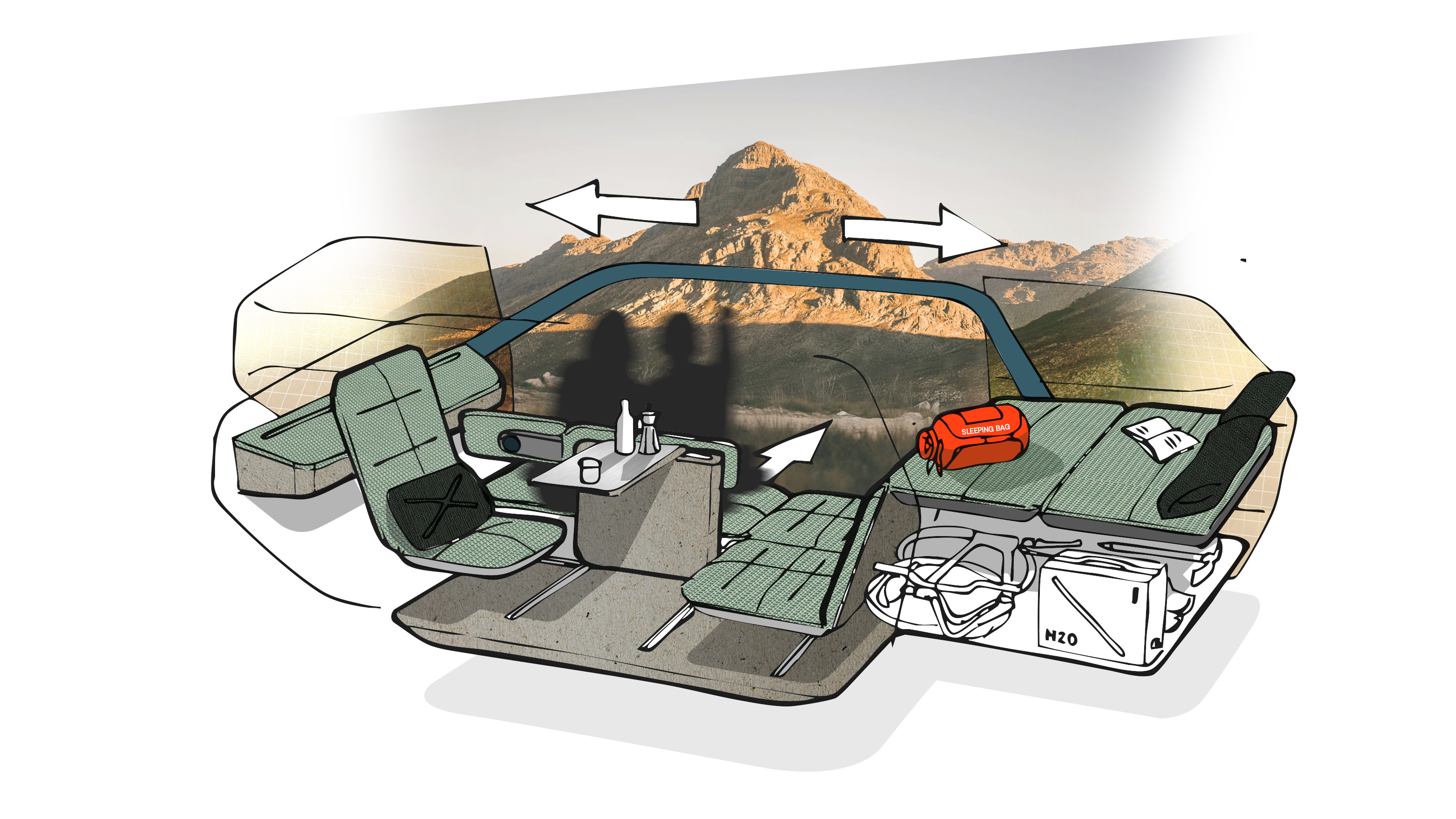 How will future car interiors take shape? London studio NewTerritory has a vision for automotive design
How will future car interiors take shape? London studio NewTerritory has a vision for automotive designDesign studio NewTerritory has set up a new automotive division to explore the future of car interiors. We interrogate the team
-
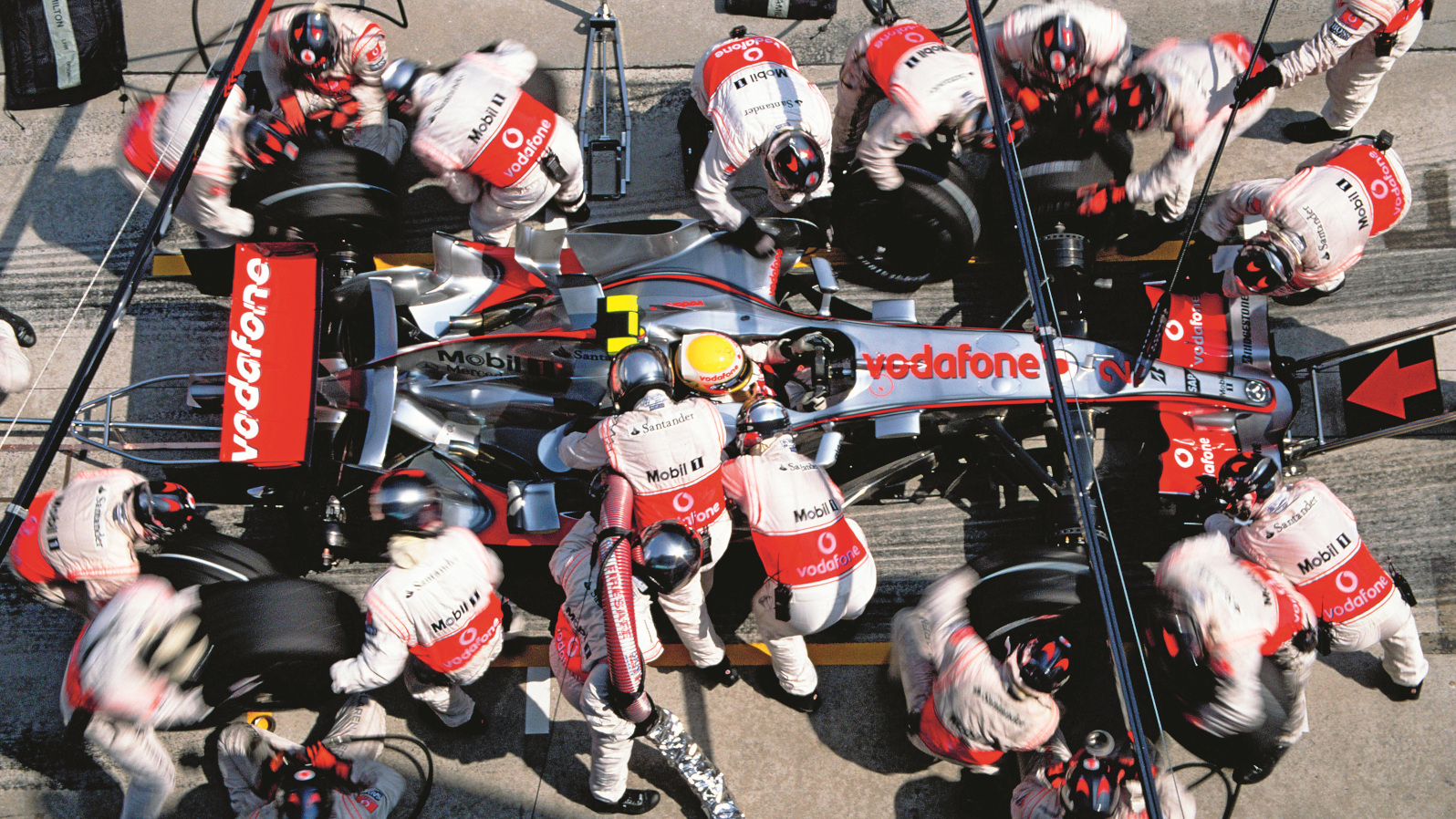 Formula 1 in photos: 100 memorable moments
Formula 1 in photos: 100 memorable momentsA new book, ‘Formula 1: The Impossible Collection’, marks 75 years of the motor-racing championship – a history full of tenacity, triumph and tragedy
-
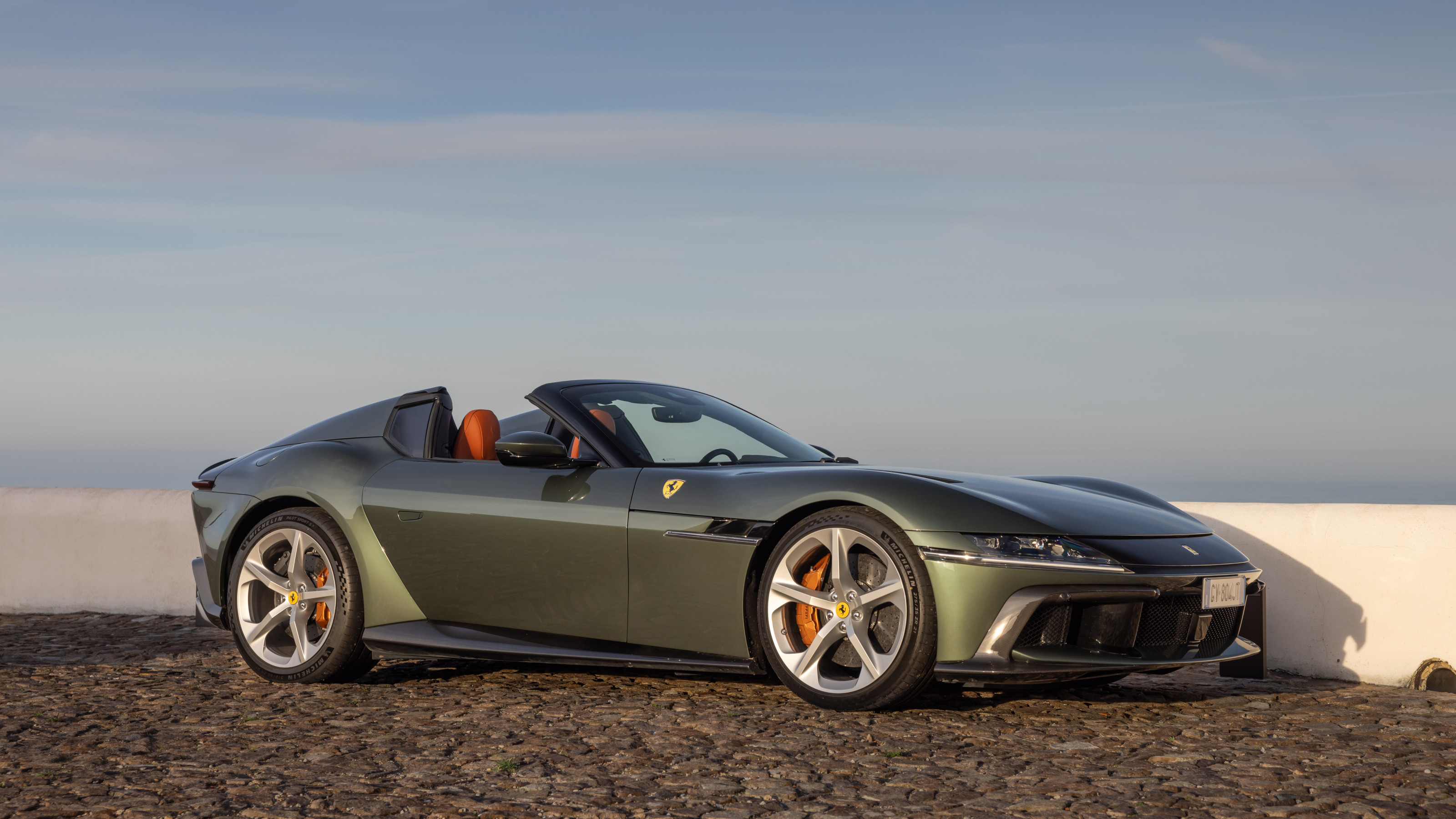 Ferrari drops the top on its mighty 12Cilindri super coupe to create the elegant Spider
Ferrari drops the top on its mighty 12Cilindri super coupe to create the elegant SpiderWe drive the new Ferrari 12Cilindri Spider, a last and glorious hurrah for the sound of the V12
-
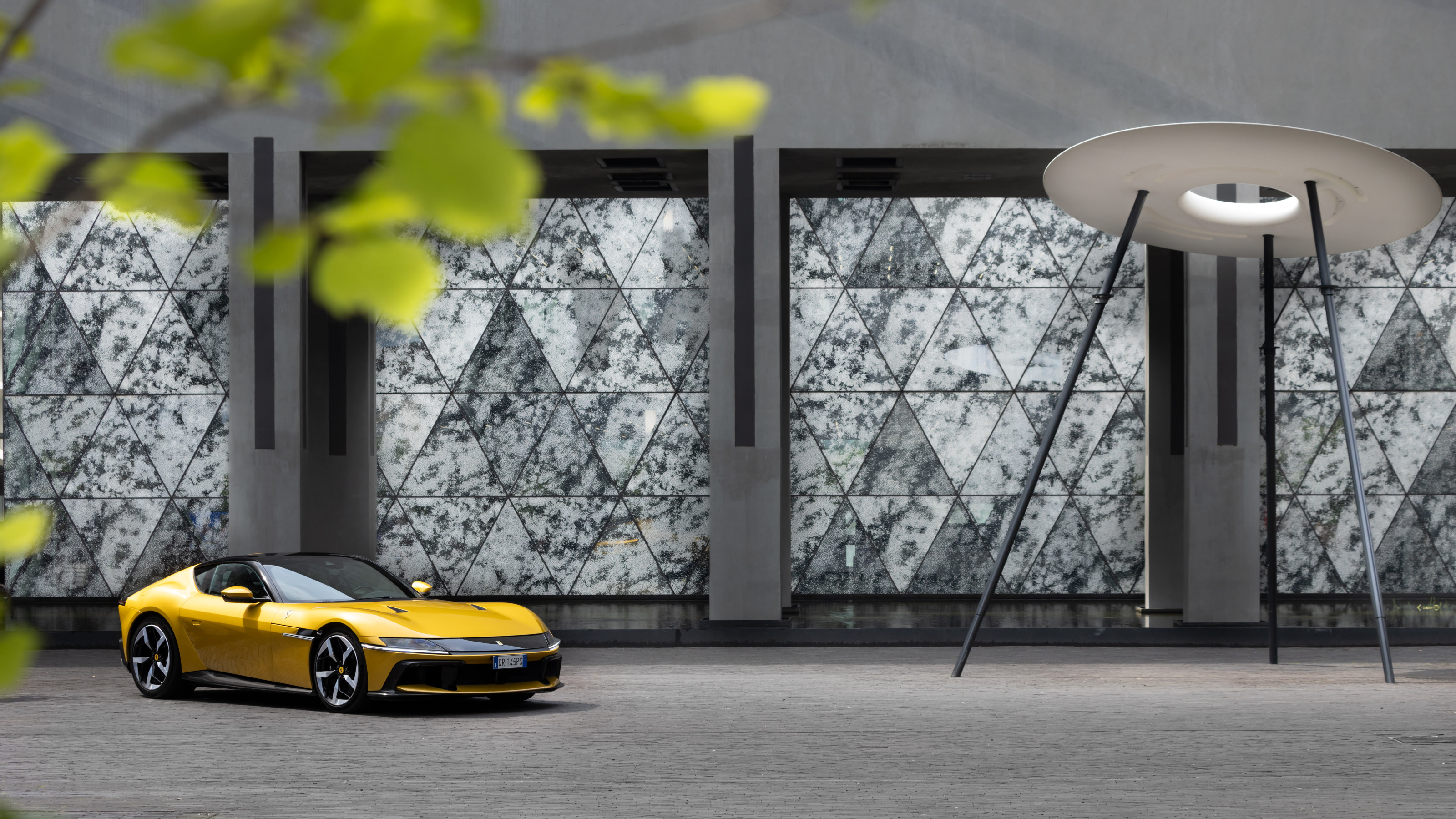 The Ferrari 12Cilindri is the ultimate expression of the marque’s greatest engine
The Ferrari 12Cilindri is the ultimate expression of the marque’s greatest engineWe sample Ferrari's latest, the mighty front-engined grand tourer that bears a simple descriptive name, 12Cilindri
-
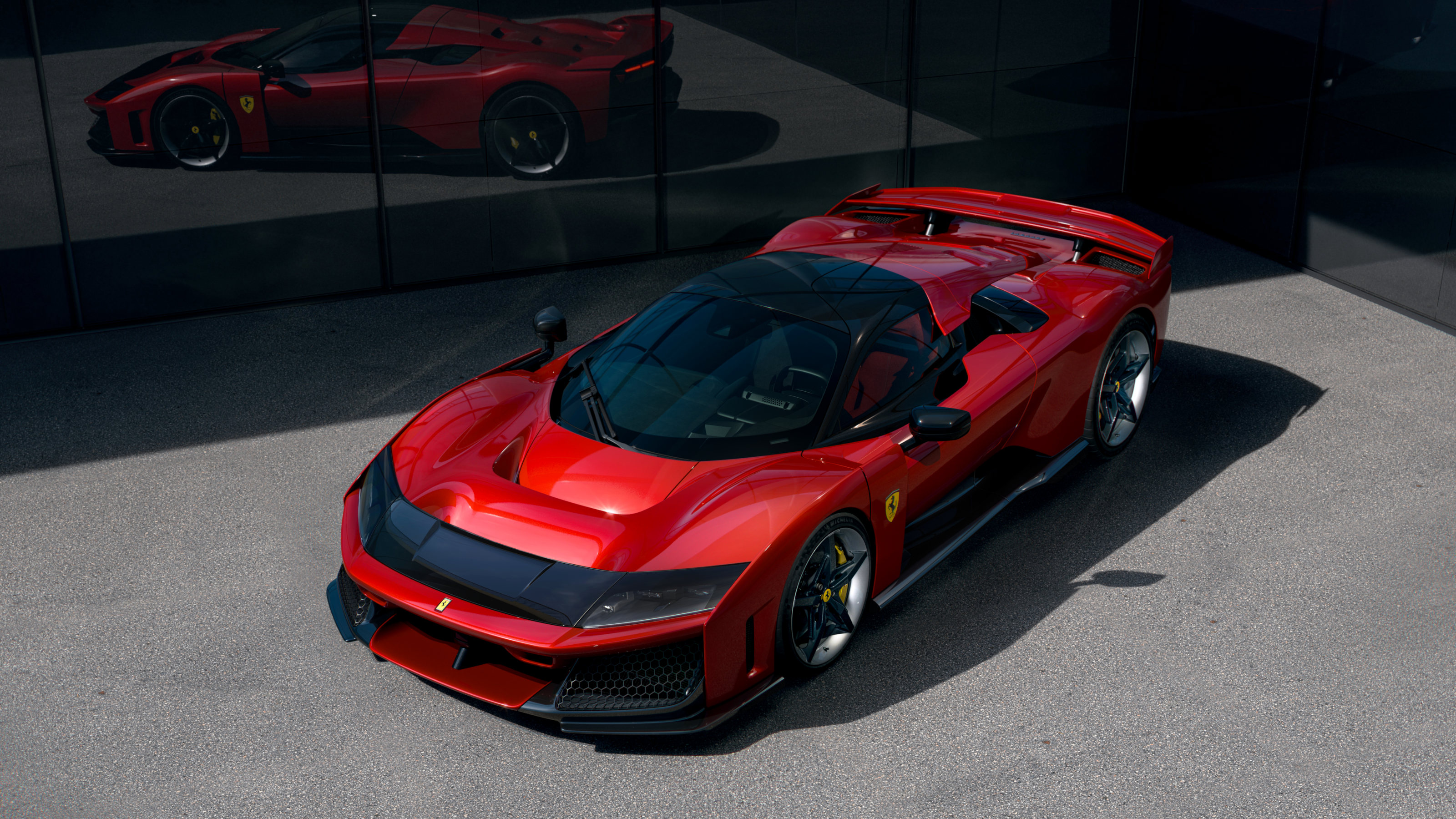 The Ferrari F80 continues the company's tradition of using supercars to showcase tech
The Ferrari F80 continues the company's tradition of using supercars to showcase techJust 799 examples of Ferrari’s ferociously complex and high-tech styled F80 will be made, helping give shape to the sports cars of tomorrow
-
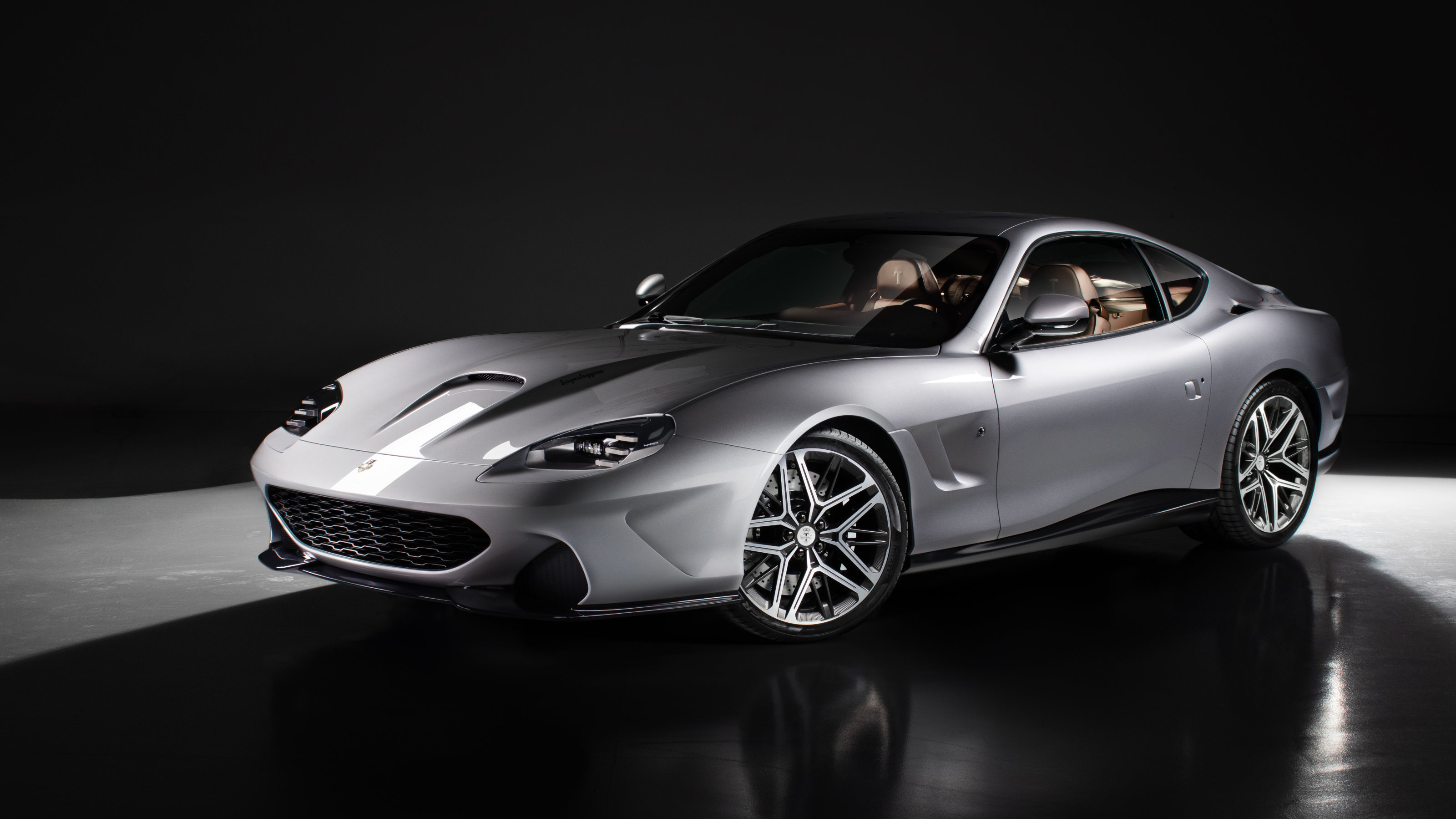 A 90s icon of Italian sports car design is reborn as the Veloce12 by Touring Superleggera
A 90s icon of Italian sports car design is reborn as the Veloce12 by Touring SuperleggeraCarrozzeria Touring Superleggera have transformed the Ferrari 550 Maranello into an all-analogue, carbon-bodied GT for the modern era
-
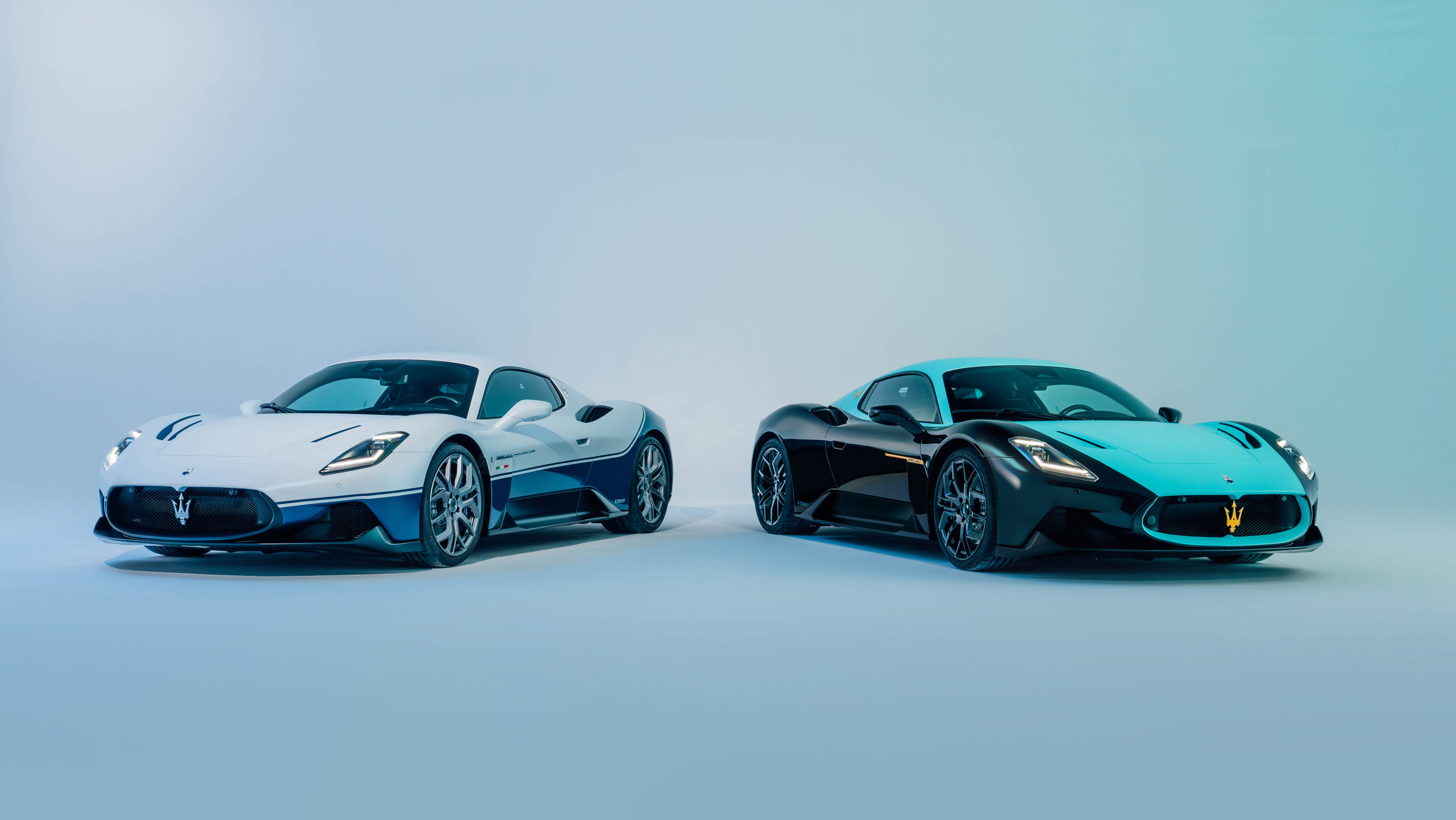 Meet two new Maserati MC20 supercars, the Leggenda and the Icona
Meet two new Maserati MC20 supercars, the Leggenda and the IconaThese Maserati MC20 special editions honour the company’s racing heritage and the 20th anniversary of the Maserati MC12 hypercar